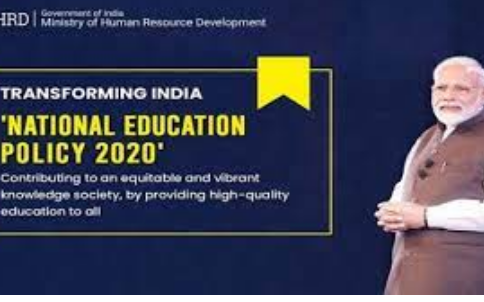“New Education Policy 2020” is a reform after 34 years. It appears that earlier nobody thought seriously about education and the result is today 85% of the students coming out of colleges are useless. It can also be said that this negligence of education is purposeful as education leads to awareness of which politicians are afraid of as they lose grip over the properly educated public. The present reform tries to make education in India at par with the education in advanced countries in the world. Let us get into a few details.
Also read: Anandayya’s drug should be distributed like fish medicine
- Entire nation will have the same system of education at all places.
- Medium of Instruction must be in regional language only till 5th class. This makes students understand every subject better. I would like to quote Mr Rajagopal IAS who stated in 1973, “India and Pakistan are the only two countries in the world which have primary education in a language other than mother tongue”. We all know from experience that ‘English medium’ is not necessary to be able to speak English fluently. From 6th class onwards there seems to be some freedom to states and institutions regarding medium of instruction. But the Central Government wants to encourage regional medium upto degree level and also in PG and Professional courses when and where possible. Most of the north Indian universities may prefer to have Hindi as medium of instruction up to PG. We need not feel strange about it as even in our engineering colleges most of the teachers are teaching their subjects mostly in regional language.
- Syllabus will be similar to that of CBSE for all. That means Memory will have less importance and understanding of the subject and ability to think and apply it will be more important. In other words a student who memorises the entire prescribed text will not be able to score more than 30% and the rest 70% depends on his ability to apply his knowledge of the text. So students will come out of schools as capable people who can do things on their own.
- Public exam will be only at the end of 12th class. We all know how stressed students are with some exam every day, particularly so in corporate schools and colleges. The new system makes students tension free as they do not have to memorise things which they did not understand. (At present a student is taught syllabus of 9 months in 3 months which obviously he fails to understand. For the rest of the time he is made to write exams because of which he will be in tension. So he is forced to memorise and after the exam forget it all resulting in an empty head though he gets a good rank.)
- Degree of 4 years is treated as equivalent to the degrees in Western universities. (Our 3 year degree is not recognised in many countries). A student can choose unrelated subjects as his optionals as there is no grouping of subjects. For example one can choose Physics, History and Painting. There is no loss for dropouts. After 1st year they get a Certificate, after the 2nd year they get a Diploma and after the 3rd year they get a degree and after 4th year they get a degree which makes them eligible for post-graduation which is of one year duration. During the study of degree one can take breaks and study some other course and come back to continue the degree.
- In some of the foreign universities if a PhD thesis is not worthy of awarding the degree they award M Phil. In other words it is a disgrace to have an M Phil degree. In the context of global interaction our people cannot flash their M Phil degrees. So M Phil course is abolished.
- Starting of e-courses, virtual Labs and allowing academic, administrative and financial freedom to deserving institutions are progressive steps.
- Government and Private institutions have to follow the same rules. This, if implemented, will bring in a revolution in education. Teachers in government institutions get good salaries but there is poor supervision on their work. In private institutions there is excessive supervision but salaries are very poor. If same salaries are paid to teachers in government as well as private institutions there would be a lot of talented people in the field of education which is the root of development of the individual as well as the nation.
- The initiators of the New Education Policy seem to have understood that education is developing the ability to think and are taking well thought out steps to develop those who can develop themselves and also their countrymen
Also read: Encourage creativity in children



